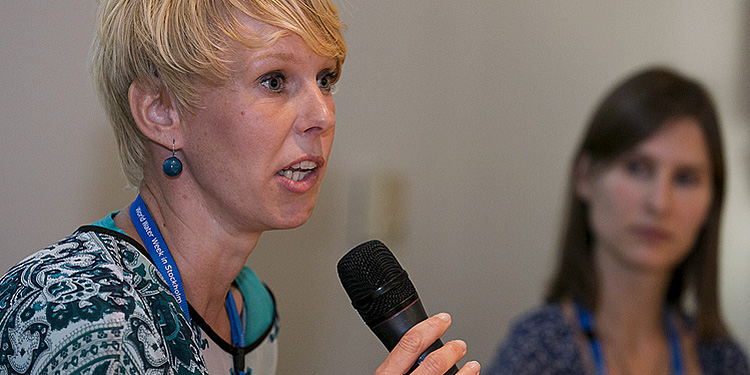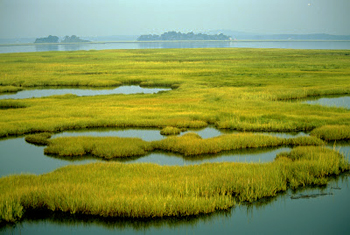Stockholm water week: “Put nature-based solutions at the heart of sustainable WASH”

“Fresh water conservation can bring environmental sustainability to WASH practice” said Suzanne Boom of Wetlands International at the Stockholm Water Week. Boom advocated the combination of wetlands conservation and WASH at a workshop on nature-based solutions.
The workshop was one of the opening sessions of the Stockholm World Water Week that focused on the core theme for this year’s event, being the importance of building partnerships and aligning
agendas.
Boom’s suggestion aligns nature conservation organizations with the water sector.
Neglected effects of hardware
“The transition towards environmental sustainability in the WASH sector is a mission possible”, stated Boom. For decades the WASH sector has focused on the delivery of water supply assets, hardware such as taps and toilets. The sustainability of such interventions is often neglected or insufficiently emphasised according to Boom. For wetland dependent communities, this can have devastating outcomes.
 Sustainable WASH needed
Sustainable WASH needed
As WASH-programme coordinator for Wetland International, Boom is very much aware that In many parts of the world, wetlands are being transformed to wastelands due to lack of drainage systems and dumping of solid waste and sewage. These wetlands, which are the source of freshwater, eventually reach their waste carrying capacity. As a result, the supply of clean water and the provision of other values such as food and biodiversity are degraded.
Natural filtration capacity and landscape approach
Through wetlands conservation water supply service can easily made sustainable by using the natural filtration capacity of these areas.
Wetland International also advocates a landscape approach to WASH planning – that considers the effects upon the surrounding natural environment – enabling both the opportunities and risks that ecosystem services provide to be assessed and included.
Wetlands International is demonstrating this on the ground with partners at Ugandan, Malian and Indian sites. For the combination of wetland conservation and WASH practices the organization teamed up with Dutch water and health -related NGO’s in the Dutch Wash Alliance.
Joint effort
During the workshop at the Stockholm water week Colleen Vollberg of the Washington-based Conservation International put it more bluntly towards the water sector. “We cannot continu to work in the old way”, she said. According to Vollberg the water sector needs to change entirely by integrating efforts to work together for sustainability.
Conservation International’s own research in sub-Saharan Africa revealed that projects were integrating WASH and biodiversity conservation on an ad hoc basis and there were clear opportunities to develop tools for organisations to work together.
More information
Wetlands International
Wageningen, the Netherlands
+31 318 660 910
www.wetlands.org
More on Stockholm Water Week on this site
- Stockholm water week: New platform addresses conflicting claims over fresh water use, 5 September 2013
- Stockholm water week: Tata Group breaks ground with industrial water footprint, 4 September 2013
- Stockholm water week: Collaboration with private sector make water suppliers aware water delivery is a service, 4 September 2013
- Stockholm Water Week: Dutch activities on the exhibition floor, 3 September 2013
- Stockholm Water Week: “Only collective action can deliver water services that last”, 3 September 2013
- Busy agenda for Dutch water experts at Stockholm Water week 2013, 30 August 2013
- Student's idea Green Cities chosen as Dutch entry for Stockholm Junior Water Prize, 16 June 2013



